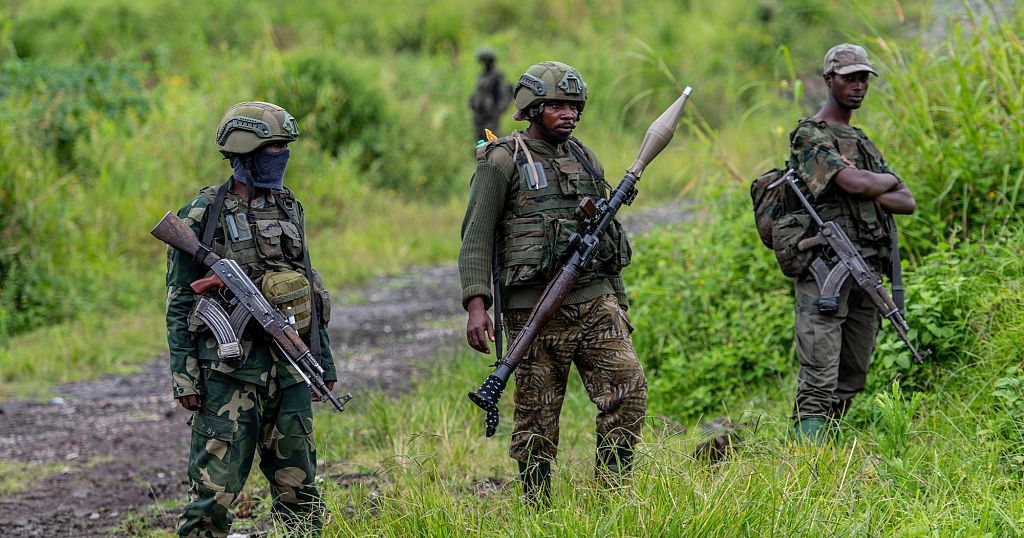The Democratic Republic of the Congo (DRC) has secured a ceasefire agreement with the M23 rebel group in its conflict-torn North Kivu region, weeks after signing a historic peace deal with Rwanda. However, skepticism persists among observers and activists who note that past accords have repeatedly failed to deliver lasting stability.
Signed on Saturday in Qatar, the latest “Statement of Intent” commits both parties to safeguard civilians and uphold Congolese sovereignty. The agreement—effective immediately and set for implementation by July 29—mandates direct negotiations for a broader peace deal by August 8, building on a separate DRC-Rwanda pact inked in Washington last month. A final accord is slated for signing by August 18, though regional analysts question the feasibility of this timeline.
In Goma, North Kivu’s provincial capital currently under M23 control, doubts about the deal’s durability run deep. The rebels, widely reported to receive Rwandan military support, have long been tied to regional resource disputes and cycles of violence. Congolese journalist and civil rights advocate Maude-Salomé Ekila criticized the agreement as yet another example of a flawed pattern, where international actors prioritize resource extraction over accountability.
“We’ve systematically reproduced the same failed approaches for decades,” Ekila told Africanews, emphasizing systemic corruption within Congo’s defense forces and the outsized influence of foreign interests. “There’s an organized system of predation aimed at Congolese resources. Every tool is deployed to sustain this exploitation, while justice is sacrificed for hollow peace deals.”
Ekila argues that the DRC’s weakened negotiating position—stemming from inadequate military capabilities and reliance on foreign-backed factions—risks repeating past failures. She highlights the absence of accountability for conflict actors as a core issue, enabling cycles of impunity. “Without justice, agreements become temporary fixes. Militias reemerge because perpetrators face no consequences,” she said, noting that justice is frequently “bartered on the altar of pseudo-peace.”
The M23, a resurgent faction linked to earlier insurgencies, has intensified clashes in North Kivu since late 2021, displacing over a million people. While Rwanda denies direct involvement, UN experts and Western governments have accused Kigali of supplying the group with troops and arms—a claim Rwanda dismisses.
The DRC government has framed the Qatar-mediated talks as a step toward ending the crisis, but experts warn that structural challenges remain unaddressed. Chronic corruption, resource-driven conflicts, and regional power struggles continue to undermine stability. Local civil society groups stress that meaningful peace requires demobilizing armed factions, addressing grievances of marginalized communities, and holding spoilers accountable.
As the August deadlines approach, the international community watches cautiously. Past agreements, including the 2013 Addis Ababa Framework, collapsed amid mistrust and violations. For now, Congolese civilians in conflict zones brace for uncertainty, their hopes tempered by decades of unfulfilled promises.
